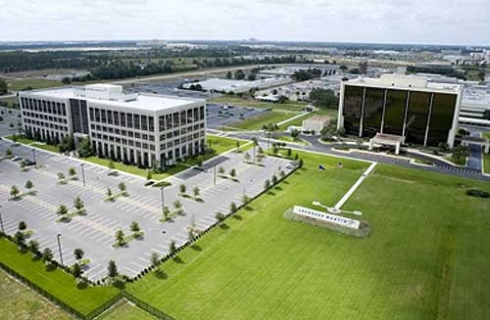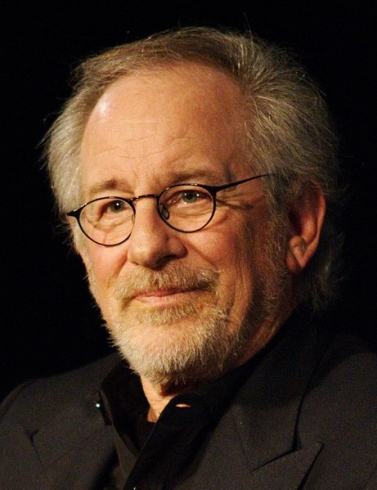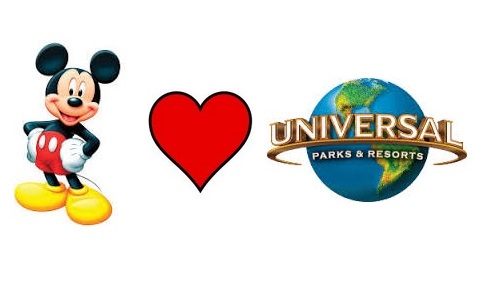3. It could be MUCH bigger

Image via Jim Hill Media
Back in the late 1990s, Universal had ambitious plans for its Orlando resort. After a disastrous opening year, Universal Studios Florida had established itself as a popular destination for visitors to Central Florida. The company's creative teams - who had never built a major ride before the Florida park opened - could now rival Disney's Imagineers. Plans were announced for a second theme park, Islands of Adventure, as well as luxury on-site hotels and the CityWalk area. Walt Disney World - in the midst of building its fourth theme park, Disney's Animal Kingdom - was about to have some serious competition.
Islands of Adventure would open in 1999. But Universal didn't plan to stop there. It acquired 2,000 acres of land from Lockheed Martin close to the Orange County Convention Center, where it planned to install two 18-hole golf courses, 700 time-share units and hotels boasting no fewer than 13,000 rooms. A second CityWalk-style retail area was also part of the plans.
Most intriguingly, though, Universal Creative had also begun working on a third theme park concept for the land. One that, according to reports at the time, would be aimed at children (a market underserved by Universal's current attractions). Universal was about to take on Disney at its own game, right in its backyard. It wouldn't stop there, either - there were even proposals for a fourth theme park by 2010, bringing Universal Orlando up to parity with Walt Disney World.
Unfortunately, by 2004 Universal Orlando's then part-owner, Vivendi, was struggling financially. Despite having spent an estimated $40 million on preparing the expansion site, Vivendi instructed Universal's management to sell it. This they did, to Thomas Enterprises, a developer based in Georgia. Since then, portions of it have been developed, and a host of plans have been put forward (but not pursued) for other sections.
2. It pays a big chunk of its revenues to a famous movie director

In March 1987, with planning work on Universal Studios Florida well underway, MCA announced that Steven Spielberg, the director of Jaws, E.T. – The Extra-Terrestrial and a swathe of other hits, had signed on as a “creative consultant” for the park. With George Lucas working on attractions for Disney, the pair – long-term friends, and collaborators on the Indiana Jones series – were now pitted in competition with each other. The announcement brought with it the first hint as to the actual content of the Florida park, with MCA revealing that attractions based on three Spielberg movies would be featured.
The deal that tied Spielberg to Universal was extraordinarily lucrative for the director. According to executives with knowledge of the arrangement, under the terms of the agreement Spielberg would collect two percent of the gross revenues from Universal Studios Florida (including tickets and concession sales), and this was designed to continue in perpetuity, such that generations of future Spielbergs would also share in the income.
The deal was renegotiated in 2009. While this meant that the director would still be entitled to a sizeable slice of the resort’s gross income, he would not now be entitled to seek a lucrative buyout until June 2017. In exchange, Spielberg would receive a stake in revenues from planned parks in Singapore and Dubai.
It may have cost a fortune, but the deal has arguably been worth it for Universal. Early rides based on movies directed or executive produced by Spielberg, including Jaws, E.T. Adventure and Back to the Future: The Ride, helped it stand out from Walt Disney World and become a success in its own right.
1. It could have been OWNED by Disney

Despite MCA’s bullish plans for Universal Studios Florida, the company did entertain the possibility of a truce with Disney. In June 1987, the firm's CEOs met to discuss whether the two companies’ attractions could be combined into a single studios park. MCA offered to drop its plans, in exchange for a half-share in Disney-MGM Studios. Disney, though, was only willing to pay MCA a small royalty to use material from its films. MCA walked away.
By 2002, Vivendi was looking to offload its stake in Universal Orlando (along with Universal's production operations). In those days, the resort was struggling to deal with catastrophically low attendance at Islands of Adventure, the shiny new theme park it had opened in 1999. On top of that, the September 11 terrorist attacks had struck a blow to the tourism industry, and Universal Studios Florida was suffering a major dip in attendance, too.
Incredibly, Disney was said to be interested in a takeover of Universal. "Any assets that are in our core business that come available, we would certainly take a look at,", Chief Financial Officer Tom Staggs told Reuters, when asked about a potential acquisition. "Our primary focus is our core business. To the extent we can do an acquisition that is not dilutive to the earnings or cash flow, we'll take a look."
Analysts speculated that Universal would have to be available at a bargain price to justify such a deal. "Owning more theme parks could make Disney even more cyclical because that's a cyclical business," said Katherine Styponias of Prudential Securities.
In the end, Disney didn't pursue a takeover. At the time, Disney itself was under pressure, with its stock price at a 52-week-low. Walt Disney World was also suffering as a result of September 11 and an economic recession. Universal was sold at a bargain basement price, though, being acquired by General Electric for just $3.8 billion (Vivendi had originally sought around $14 billion).
Learn the full story behind Universal Orlando!
To learn more about the history of the Universal Orlando Resort and how its attractions were created, check out Universal Orlando: The Unofficial Story - the first book ever to document the resort's creation and evolution, from its debut to the present day. The book is available from Amazon.com and Amazon.co.uk in paperback and Kindle formats.

Comments
We loved the 2 universal parks while our 2 children where growing up but just us 2 are going back this June (2014) with no children so are looking forward to doing city walk at night time and also parks in the day time at our pace (no kids) great place that has provided great memories